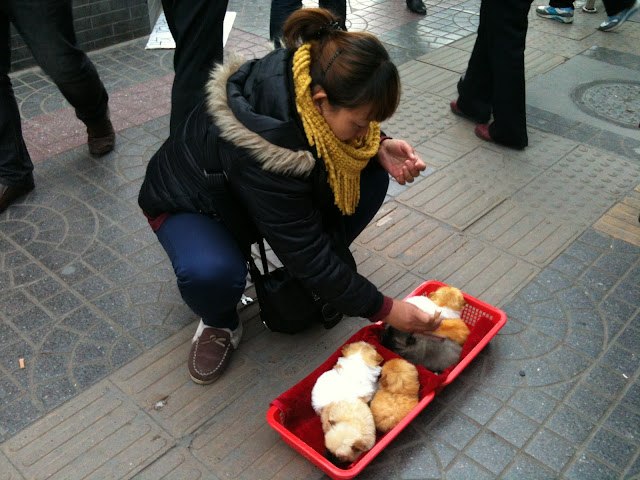The skyline filled with high rise apartments, it could be mistaken for New York city.
Welcome to Shanghai, the most un-Chinese city in China.
Just two decades ago the scene would have been completely different. Remarkably, many of the impressive buildings housing the country's biggest companies have sprung up in the last 20 years.
And don't expect the growth to stop any time soon.
As the west tries to borrow its way out of the worst economic crisis in a generation, the building work continues unabated in China.
Welders could even be seen working away on Sunday as the latest steel and glass buildings shoot up into the sky.
In the vast shopping malls the brands are all very familiar - Gucci, Cartier and Armani stores sit alongside Next, Gap and H&M. To eat in, there is McDonalds, KFC and Pizza Hut.
This is a city with the dynamism of New York in the 1920s, and is the ultimate symbol of the modern China.
Beijing is sprawling, dirty and cluttered in comparison.
Parts of the new James Bond film Skyfall were shot in Shanghai
During our stay, we visited the bar in the (check) 88-storey Jinmao tower which is the second tallest building in Shanghai.
In the clouds: View from the 87th floor bar in the Jinmao Tower, Shanghai, on a cloudy day
Most tourists pay 88CNY (£8.80) to go to the top floor viewing platform. But instead we paid 100CNY (£10) each for a beer and a wine on the 87th floor.
The views should have been simply breathtaking from the ultra posh hotel bar. Unfortunately the weather was dreadful and all we could see was clouds in the appropriately-named Cloud Nine bar.
Up top: The clouds part allowing us a view down on modern Shanghai below from the 87th floor bar
As we slowly sipped our tiny but expensive alcoholic drinks, trying to see how long we could eke out our visit for, the sky did just about clear so we could see down.
In contrast to other Chinese cities, you see a lot of western faces here. Many Chinese people are poor and would never dream of stepping into the pricey malls. With the western brands come sky-high prices close to those we are used to paying back home. But then being in Shanghai really doesn't feel like being in China at all.
Top of Shanghai: Kelly-Ann enjoys a glass of white wine in the Cloud Nine bar, Jinmao Tower, Shanghai



















